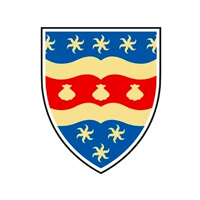fees waived
Conservation Biology, BSc (Hons), with industry placement
University of Plymouth, United Kingdom
Subject ranking
UK / The Times 13th
UK / Guardian 13th
UK / QS 13th
Costs
food & rentS$16.8K / year
Entry requirements
Scholarships
1 available
Unlimited quantity
Unlimited quantity
Unlimited quantity
Limited quantity
Information
Code
Code
Intakes
Website (External)
Programmes
Information
Duration
2028
Course summary
Why should we conserve biodiversity? How can we manage and restore habitats? With a hands-on approach, we’ll give you the scientific tools to address these issues, developing your understanding of plant and animal biodiversity in the UK and abroad. Develop your knowledge of key areas such as population ecology, evolutionary processes, behavioural ecology, conservation genetics and habitat management, and prime yourself for a career in ecology, conservation or environmental monitoring.This programme focuses on conservation in terrestrial, marine and freshwater environments.You will have the opportunity to experience two overseas residential field courses or an alternative, giving you first-hand experience of a range of ecosystems. Recent locations include southern Spain, Mexico and Costa Rica. You can participate in an optional work placement year, giving you the opportunity to apply your knowledge in a real world context.
- We’re very proud of our National Student Survey (NSS) 2020 return: 100% of the student respondents said our staff are good at explaining things, 100% said that the course intellectually stimulating and 97% also expressed overall satisfaction with the course.
- Explore the varied natural habitats for fieldwork on our doorstep in Devon and Cornwall.
- You will have the opportunity of experience two overseas, residential field courses or an alternative in years 1 and 2, giving you first-hand experience of a range of ecosystems. Recent field course locations include Spain, Mexico and Costa Rica.
- Benefit from enthusiastic, committed, and approachable staff whose expertise is endorsed with years of research and work in the private conservational sector.
- Participate in an optional work placement year, giving you the opportunity to apply your knowledge in a real world context.
- Benefit from our strong links with local organisations such as Paignton Zoo, the Eden Project, the Devon Wildlife Trust and Dartmoor National Park, along with various countryside management teams.
- Equip yourself with the academic background and skills training for careers in ecology, conservation, environmental monitoring and habitat management.
- LABplus is a unique open access laboratory and resource centre designed for students studying science and engineering courses. The lab provides a flexible workspace, computing facilities, specialist software, access to microscopes, microscope cameras and bespoke resources.
- Take part in small group tutorials running throughout Years 1 and 2.
- Boost your practical skills using our specialised facilities including controlled environment chambers, experimental glasshouses, and an electron microscopy unit.
Modules
Year 1In your first year, you’ll establish a solid foundation in ecology, biodiversity, natural history, taxonomy, genetics, evolution, microbiology, animal and plant physiology, and animal behaviour. You will gain essential practical field skills through local field trips and a field course. You’ll also begin to develop useful personal and transferable skills through individual and one-to-one meetings with a personal tutor.Year 2You will develop a deeper understanding of animal behaviour, population and community ecology, population genetics, and ecosystem monitoring. You will also tailor your skills ready for the workplace by specialising through optional modules in aquatic systems or plant-environment interactions. During a field course, you will experience a wide range of ecosystems and put these concepts into context, developing your practical and transferable skills.Optional placement yearYou’ll be encouraged to undertake an optional placement year in order to gain experience of the professional world of conservation biology. Successful completion leads to the Certificate of Professional or Work Experience.Final yearYour personal research project forms a major part of your final year. Alongside this, you’ll build on advanced skills and concepts in biological disciplines as well as skills in applied conservation biology. You’ll select modules from a range of options including plant biotechnology, environmental policy, global change biology, behavioural ecology, marine vertebrate ecology and conservation and biodiversity, which will prepare you as a conservation biologist ready to enter the workplace.
Professional bodies
Professionally accredited courses provide industry-wide recognition of the quality of your qualification.- Royal Society of Biology
Qualified teacher status (QTS)
To work as a teacher at a state school in England or Wales, you will need to achieve qualified teacher status (QTS). This is offered on this course for the following level:- Course does not award QTS
Year 1 In your first year, you’ll establish a solid foundation in ecology, biodiversity, natural history, taxonomy, genetics, evolution, microbiology, animal and plant physiology, and animal behaviour. You will gain essential practical field skills through local field trips and a field course. You’ll also begin to develop useful personal and transferable skills through individual and one-to-one meetings with a personal tutor. Year 2 You will develop a deeper understanding of animal behaviour, population and community ecology, population genetics, and ecosystem monitoring. You will also tailor your skills ready for the workplace by specialising through optional modules in aquatic systems or plant-environment interactions. During a field course, you will experience a wide range of ecosystems and put these concepts into context, developing your practical and transferable skills. Optional placement year You’ll be encouraged to undertake an optional placement year in order to gain experience of the professional world of conservation biology. Successful completion leads to the Certificate of Professional or Work Experience. Final year Your personal research project forms a major part of your final year. Alongside this, you’ll build on advanced skills and concepts in biological disciplines as well as skills in applied conservation biology. You’ll select modules from a range of options including plant biotechnology, environmental policy, global change biology, behavioural ecology, marine vertebrate ecology and conservation and biodiversity, which will prepare you as a conservation biologist ready to enter the workplace.
A local representative of University of Plymouth in Singapore is available online to assist you with enquiries about this course.

